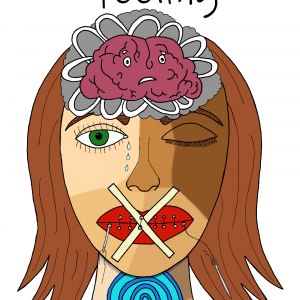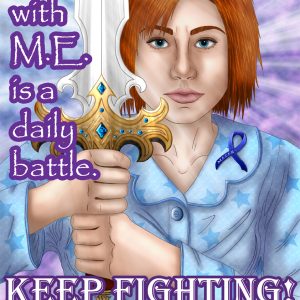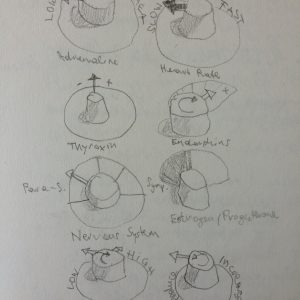
Myalgic Encephalomyelitis (ME)
Myalgic Encephalomyelitis (ME), also sometimes called Chronic fatigue syndrome (CFS), is a long-term (chronic), fluctuating, neurological condition that causes symptoms affecting many body systems, more commonly the nervous and immune systems.
Read more about Myalgic Encephalomyelitis (ME)
M.E. affects an estimated 250,000 people in the UK, and around 35 million people worldwide. One in four are so severely affected that they remain house and/or bed-bound.
M.E. cost the UK economy at least £3.3 billion each year; this figure accounts for healthcare costs, disability-related welfare payments, productivity losses and unpaid informal care. Yet research funding into the condition represents less than 1% of all active grants given by UK mainstream funding agencies.
People with M.E. experience debilitating pain, fatigue and a range of other symptoms associated with post-exertional malaise, the body and brain’s inability to recover after expending even small amounts of energy.
Even in its so-called mildest form, M.E. can have a significant impact on an individual’s life, and not just on their health. A lack of understanding and awareness about M.E. means children, families and adults affected by M.E. can experience disbelief, and even discrimination, from friends, family, health and social care professionals, teachers, employers and colleagues. Many people with M.E. struggle to access appropriate care and support, with less than one third of NHS commissioning bodies holding any data on M.E. prevalence.
Vast numbers of adults and children with M.E. do not have access to any specialist service at all, even though research shows that people with M.E. score lower overall on health-related quality of life tests than most other chronic conditions (Hvidberg et al, 2015).
So it’s not surprising that frustration, anxiety, low mood and depression are sometimes experienced by people with M.E. as a consequence of having to cope with the impact of the condition. Sadly, people with M.E. are six times more likely to die by suicide compared to the general population.
M.E is not just physically and socially isolating. The lack of acceptance can also make this condition a very lonely place. One young person with M.E. told Action for M.E.: “My friends try to be helpful, but I don’t like talking about it much, and sometimes I think I haven’t said enough. More than once I’ve assumed they knew how difficult something was for me, and then found that them talking about how hard life must be for a more visibly disabled friend.”
(Source: Action for M.E.)
Patient support charity

Other resources
You might also be interested in this graphic novel (book-length story using words and images) about one woman’s experience of infertility and M.E.:
















